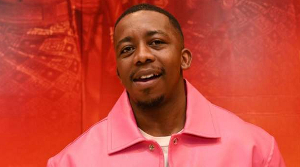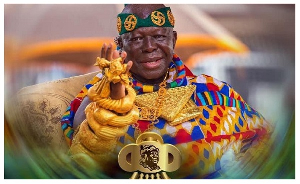- Home - News
- TWI News | TV
- Polls
- Year In Review
- News Archive
- Crime & Punishment
- Politics
- Regional
- Editorial
- Health
- Ghanaians Abroad
- Tabloid
- Africa
- Religion
- Election 2020
- Coronavirus
- News Videos | TV
- Photo Archives
- News Headlines
- Press Release
General News of Tuesday, 25 October 2011
Source: Statesman
Mills gives nation worst BECE results in 13yrs
Information obtained from the West African Examinations Council, coupled with painstaking research conducted by the New Statesman, indicates that ever since President John Evans Atta-Mills assumed the reins of office in January 2009, the pass-rate of students who have sat the Basic Education Certificate Examination have been on a downward decline, resulting in 574,688 young people being thrown onto the streets with no employable skills in the past three years.
The 2011 results of BECE students have been the worst in 13 years, using 1998 as the base year, with 46.93% of students achieving a pass rate and thus being eligible for placement into Senior High Schools. Out of the 375,280 students who sat for the 2011 examination, only 176,128 passed their examinations with the fate of 199,152 students left in their own hands.
In 2010, the second year under President Mills’ tenure saw 350,888 students sitting for the examination with 172,359, representing 49.12%, of students achieving a pass rate. 2009, perhaps, represented the best result achieved by President Mills’ and his NDC government with 50.21% of students achieving a pass rate.
The New Statesman can also reveal that President Mills in the foreword of the 2008 manifesto lied to Ghanaians when he stated that: “The quality of education is at an all time low with 50% of JSS students who last year [2007] sat for the Basic Education Certificate Examinations failing ‘beyond pardon’ – failure.”
Figures from the WAEC reveal that 61.28% of students, and not 50% as stated by Prof Mills, passed the 2007 BECE examination. The 2008 batch of BECE students bettered of 2007 when 210,282 students out of the 338,292 who sat the examination scored between aggregates six and 30, thus meeting the requirements for placement into second-cycle schools under the Computerised Schools Selection and Placement System.
When the NPP was in power, it achieved an average pass rate of 61.25% for students who sat the BECE examination over an eight year period. 2001 represented the lowest point of BECE results under the NPP’s tenure with 60.40% of students achieving a pass rate.
The poor results of 2011 come on the bad policy decisions taken by the Mills administration. There were agitations and strike actions embarked by teachers who demanded better pay promised by President Mills in the run up to the 2008 elections and also the slashing by 6.79% of the Capitation Grant and BECE subsidy in the 2011 budget from GH¢35.5m to GH¢33m.
In 2010 the NDC government spent 7.93% of GDP on education and unsurprisingly this figure reduced in 2011 to 7.57%. Under the NDC, now and before, there is a clear policy to deprioritise and reduce spending on education, at the detriment of improving the quality of education. The result of this measure has been made evidently clear in the 2011 BECE results.
This decision of Government to slash funding in key education areas, according to a Danquah Institute report, is indicative of the gradual return to the situation of negligible funding witnessed under the NDC in 2000 where only 4.4% of Ghana's GDP was spent on education as opposed to the situation in 2007 where 9.1% GDP was spent on education.
Earlier this month, the 2012 Presidential Candidate of the New Patriotic Party, Nana Addo Dankwa Akufo-Addo, stated that the current trend in Ghana where an estimated quarter of a million school leavers are thrown onto the streets without any form of basic, employable skills represented a disastrous phenomenon which in the end could be a major threat to Ghana's national security.
Key to halting this trend, according to the NPP flagbearer, would be the redefining of basic education so that it ends, not at the Junior High School, but at the Senior High School level.
This move, Nana Addo explained, would thus prevent children from joining the workforce at age 15 and will also present even the brightest of children the opportunity of benefiting from a few more years in school.
“Senior High School will be free for all Ghanaian children - and this period will provide a better opportunity for them to discover their talents and give them a better platform to build their lives, to make the Ghanaian workforce more competitive on the world stage,” Nana Addo explained.
Year Total No of Students
Sitting BECE Exam Number of Students
with a Pass Percentage Pass
1998 229,432 138,477 60.36%
1999 233,740 140,729 60.21%
2000 233,785 141,535 60.54%
2001 247,663 149,600 60.40%
2002 264,979 160,262 60.48%
2003 268,284 163,613 60.99%
2004 278,391 170,324 61.18%
2005 287,297 176,959 61.59%
2006 308,383 190,924 61.91%
2007 320,247 196,240 61.28%
2008 338,292 210,282 62.16%
2009 395,649 198,642 50.21%
2010 350,888 172,359 49.12%
2011 375,280 176,128 46.93%










